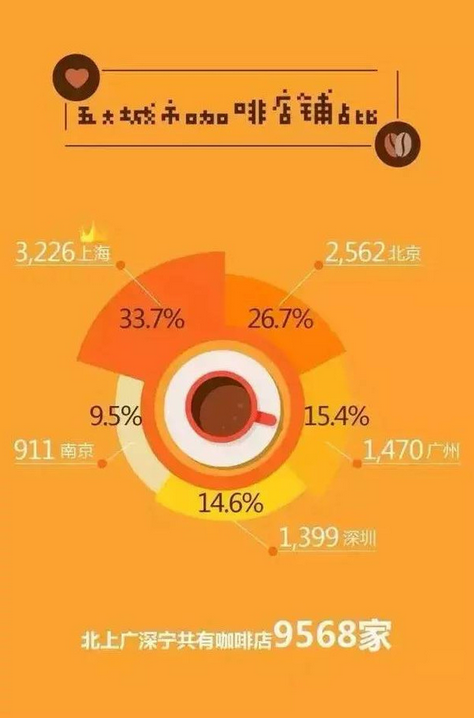The weak Brazilian currency, the falling price of coffee beans, the Singapore operator's purchase of US dollars is difficult to gain.

According to Singapore's Lianhe Zaobao on September 16, the rating of Brazil, the world's largest coffee supplier, has been downgraded, causing coffee prices to fall to a new low. But Singapore coffee makers buy in US dollars, and the cost of coffee beans has not fallen significantly in an environment where the Singapore dollar has fallen against the US dollar.
Standard & Poor's (Standard and Poor's), the international credit rating company, last week downgraded Brazil's debt to "junk", pushing the value of the Brazilian currency, the rial, to a 13-year low against the dollar.
That, in turn, caused Robusta coffee to fall to a two-year low of $1544 a tonne on Friday, down about 20 per cent from a year earlier. Arabica coffee beans (Arabica coffee) fell to an one-and-a-half-year low of $1.16 a pound. However, the price of coffee has rebounded a little recently.
But Singapore's coffee industry has not benefited significantly from the drop in coffee bean prices. Coffee Nowhere has three cafes in Singapore. Hong Weisheng, the owner, imports coffee beans directly from South America, roasting and grinding them not only for his own use, but also wholesale to other cafes. He believes that the current price of coffee beans in Brazil is much lower than at the beginning of last year, but the Singaporean industry has not benefited much.
Hong Weisheng said in an interview: "the price of coffee beans in Brazil rose by 30% from the beginning of last year to the middle of last year because of a sharp drop in production, and the price did not fall by about 20% until production rebounded at the end of last year."
In addition, as Brazilian producers are quoted in US dollars, the US dollar is strengthening, so Hong Weisheng believes that the cost of Singapore importers has not been reduced much.
Chen Bohao, head of the Nanyang Coffee Powder Factory, which wholesale coffee beans and coffee powder to the coffee shop, also revealed that the importer said that the US dollar was strong, so the price he bought from the importer last week also went up, showing no sign of lowering at all. Prices did go up during the drought in Brazil last year.
The main costs of Singapore operators are rent and labor.
The retail price of coffee is not expected to fall. Hong Weisheng explained: "the coffee beans needed for a cup of coffee are only about 20 grams, so the price of coffee beans will not affect the cost too much. Other costs are actually higher, especially rent and labor." The retail price will not be adjusted unless the cost of coffee beans is reduced by more than 50%. "
Robsta and Arabica are the two most traded types of coffee beans in the world. the former focuses on texture, tastes bitter, and is mostly used for instant coffee. Traditional coffee shops in Singapore often use this kind of coffee beans. The latter focuses on aroma, high quality, but the price is also more expensive, high-quality coffee shops generally use this kind of coffee beans.
Carsten Fritsch, an analyst at Commerzbank, said: "the continued depreciation of the Brazilian currency rial is the main reason for the drop in coffee prices. Especially after Standard & Poor's downgraded Brazil's debt to junk status, Brazil's currency, the rial, fell to its lowest level since October 2002. "
Wang Tao, a commodity and energy market analyst with Reuters, said Arabica coffee prices could fall below the support point of $1.1570 a pound, and the decline could extend to $1.0450 a pound.
Michael Seery, an analyst at Seery Futures, also said that major coffee suppliers, such as Brazil and Colombia, are facing adverse factors such as a bumper harvest of coffee beans, abundant stocks and a weak currency, which make it difficult for coffee prices to find a catalyst to stimulate coffee prices in the short term.
But he also cautioned that if El Ni ñ o intensifies, it could affect the coffee harvest, leading to a reduction in coffee supply and a rise in prices.
Carlos Mera Arzeno, a commodity analyst at Rabobank International, said that the current low price of coffee may stimulate purchases and cause fluctuations in coffee prices.
Important Notice :
前街咖啡 FrontStreet Coffee has moved to new addredd:
FrontStreet Coffee Address: 315,Donghua East Road,GuangZhou
Tel:020 38364473
- Prev

British company invents "007" coffee cup: can record and secretly take pictures with one button.
Chinanews.com, Sept. 16-according to foreign media reports, as a spy or undercover agent, all personal belongings can also be secret tools. A British company recently invented a high-tech coffee cup with a mediocre appearance, but the whole story lies in the lid: a high-pixel pinhole camcorder. It is reported that the image quality of this high-pixel pinhole camcorder is sufficient for evidence in court, and it has eavesdropping function.
- Next

Ten pictures give you an instant understanding of the digital world of coffee brands.
At present, there are about 200 to 250 million potential coffee consumers in China, which is on a par with the market of the United States, the world's largest coffee consumer. The huge consumer market brings more opportunities. If you want to get a piece of the coffee market, the first thing to do is to understand the market.
Related
- What grade does Jamaica Blue Mountain No. 1 coffee belong to and how to drink it better? What is the highest grade of Blue Mountain coffee for coffee aristocrats?
- What are the flavor characteristics of the world-famous coffee Blue Mountain No. 1 Golden Mantelin? What are the characteristics of deep-roasted bitter coffee?
- Can I make coffee a second time in an Italian hand-brewed mocha pot? Why can't coffee be brewed several times like tea leaves?
- Hand-brewed coffee flows with a knife and a tornado. How to brew it? What is the proportion of grinding water and water temperature divided into?
- What is the difference between Indonesian Sumatra Mantinin coffee and gold Mantinin? How to distinguish between real and fake golden Mantelin coffee?
- What does bypass mean in coffee? Why can hand-brewed coffee and water make it better?
- Unexpected! Ruixing Telunsu lattes use a smoothie machine to foam milk?!
- % Arabia's first store in Henan opens into the village?! Netizen: Thought it was P's
- Does an authentic standard mocha coffee recipe use chocolate sauce or powder? Mocha Latte/Dirty Coffee/Salty Mocha Coffee Recipe Share!
- What is the difference between Vietnam egg coffee and Norway egg coffee? Hand-brewed single product coffee filter paper filter cloth filter flat solution!

